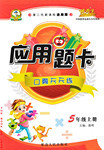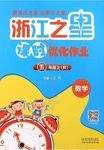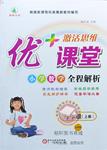题目内容
【题目】假定英语课上老师要求同桌之间交换修改作文,请你修改你同桌写的以下短文。短文中共有10处错误,每句中最多有两处。错误涉及一个单词的增加、删除或修改。
增加:在缺词处加一个漏字符号(∧),并在此符号下面写出该加的词。
删除:把多余的词用斜线(\)划掉。
修改:在错的词下划一横线,并在该词下面写出修改后的词。
注意:1.每处错误及其修改均仅限一词;
2.只允许修改10处,多者(从第11处起)不计分。
I have just got some good news to tell you.I win a national prize for my painting last week.My father was so pleasing that he suggested I went to England for a holiday this summer.I'd like to stay here for half a month,visiting some places of interest and practise my English as well.We have kept in touch each other for nearly a year now.I have often dreamed of talking face to face with you.I hope you'll be on the holiday at that time,but I'm sure we will have a lot to talk about.I also want to buy some souvenir for my friends at home.If I have any better ideas,please share them with me.
【答案】1. win→won;2. pleasing→pleased;3. went→go;4. here→there;5. practise→practising;6. touch后加with;7. holiday前的the去掉;8. but→and; 9. souvenir→souvenirs;10. I→you
【解析】第一处 根据时间状语last week可知,应该用过去时,故win改为won。
第二处 pleasing表示“令人高兴的”,修饰物;pleased表示“人感到高兴的”,修饰人。这句话中主语为人,故pleasing改为pleased。
第三处 suggest表示“建议”,后面的宾语从句应该用虚拟语气should+动词原形,should 可以省略,故went改为go。
第四处 此处指示代词代指的是England,所以应该说那儿。故here改为there。
第五处 practise和visiting是并列的,在这里作伴随状语,都与逻辑主语是主动关系,故practise改为practising。
第六处 keep in touch with sb.是固定短语,表示“与某人保持联系”。故touch后加with。
第七处 be on holiday是固定短语,“在度假”,故把the去掉。
第八处 前后两句之间是承接关系,而不是转折,故but改为and。
第九处 souvenir是可数名词,根据some可知应用复数,故souvenir改为souvenirs。
第十处 此处表示如果你有更好的主意,故I 改为you。

 优秀生应用题卡口算天天练系列答案
优秀生应用题卡口算天天练系列答案 浙江之星课时优化作业系列答案
浙江之星课时优化作业系列答案 激活思维优加课堂系列答案
激活思维优加课堂系列答案